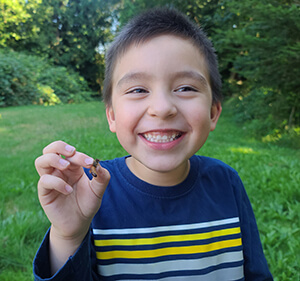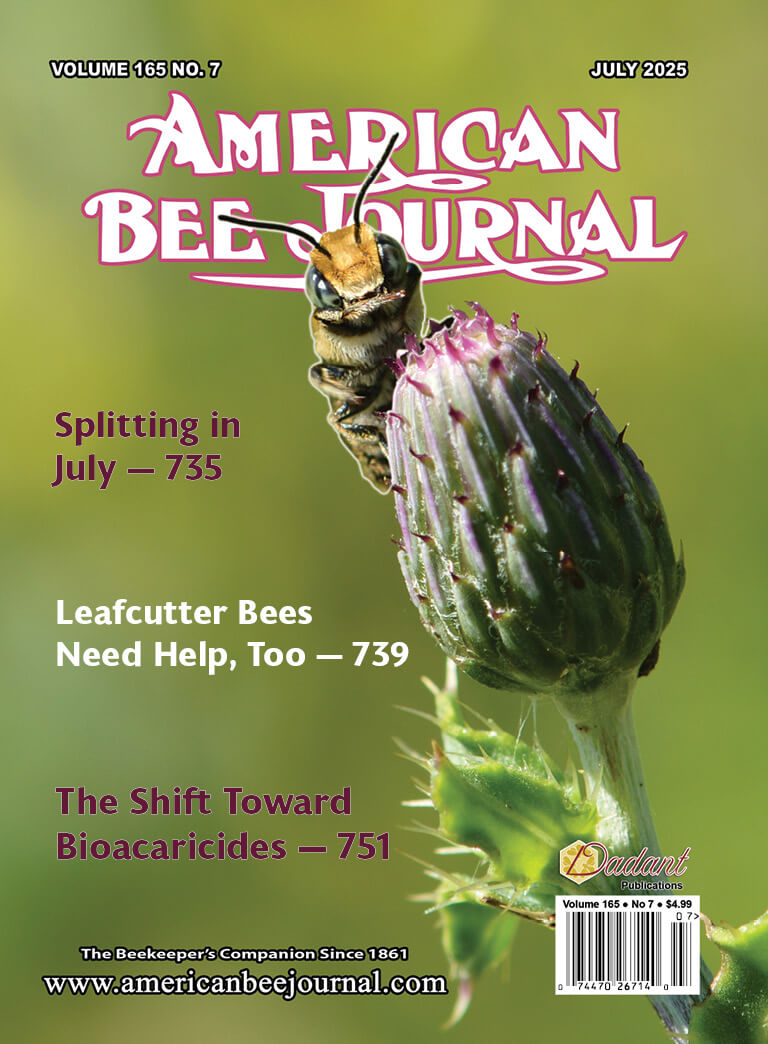
RAISED IN A BEE FAMILY
Some kids are born with a silver spoon in their mouth, others are born with a hive tool in their hand. Mine are definitely the latter.
We recently culled queen cells and left one out on our porch. Nate, my 4-year-old, found it and opened the queen cell to discover a live (but premature) virgin queen. He ran inside yelling “I found a queen!” So, he caged her, fed her syrup, and was pleased to have his own “pet queen bee.”
Keeping the premature queen alive was unsuccessful … but don’t tell Nate; my wife, Dorothy, secretly swapped it out with a healthy mated queen.
Now Nate wants to constantly check on the hive with “his” queen bee. Normal families might swap out a dead goldfish … mine swaps out dead queens!
Ted McFall
Custer, Washington
DO NOT RE-USE APIVAR (AMITRAZ) STRIPS
To Randy Oliver,
I am contacting you because a member of my state beekeeping Facebook group is reporting that you have stated that once-used Apivar strips still contain plenty of active ingredient amitraz and can be reused once before discarding.
I couldn›t find an article of yours that stated this so I wanted to reach out for clarification. I have concerns that this beekeeper is spreading misinformation that could potentially lead to beekeepers using sublethal doses of Apivar. As Apivar is essentially our last effective “hard chemical“ treatment, I am very concerned about varroa building resistance to it.
Can you provide clarification on this issue? Even if Apivar strips still had some amitraz after being used would you personally recommend beekeepers use a strip twice before discarding (assuming it was legal)?
Thank you so much!
Joseph Sullivan
Brooksville, Florida
Randy responds:
Hi Joseph,
I report on scientific findings and my own observations — I studiously avoid making any recommendations. Regarding Apivar strips, I did publish the results of an experiment of mine that indicated that a piece of used strip could still kill mites on caged bees in an incubator (http://scientificbeekeeping.com/6501-2/). But I have no data whatsoever as to the efficacy of reused Apivar strips in hives.
That said, the label for Apivar clearly states “DO NOT re-use the strips.” The label is the law, period.
Thanks for asking!
Randy
Asian Giant Hornet News
I am writing you today in regards to the story last night (July 20) on ABC News about the first Vespa mandarinia being found in Washington state. They did not go into further details.
I was reading the April issue of ABJ where a gentleman thought he was battling these Asian hornets in Georgia. Then in June the same gentleman stated that the hornets he was battling were [European] hornets.
Now the state of Washington has a confirmed “Murder hornet.” I am wondering if these hornets are going to spread like the African bee has moved throughout the southern U.S. Also, how is the state of Washington searching for the nest of this hornet?
Darren
Florence, Arizona
Hi Darren,
As of mid-August, the Washington State Department of Agriculture was reporting two such hornets trapped, and five other positive IDs. Between the department and citizens, some 1400 traps have been set throughout the state. Further information from the department’s website:
“The basic plan includes spring, summer, and fall trapping. Summer and fall trapping will include trapping hornets live, tagging them, and tracking them back to their colony. Once a colony is discovered, the colony will be eradicated. WSDA plans to work extensively with the pubic to provide outreach and education about the hornets as well as to encourage the public to document and report Asian giant hornet sightings. However, Asian giant hornets are dangerous and …


